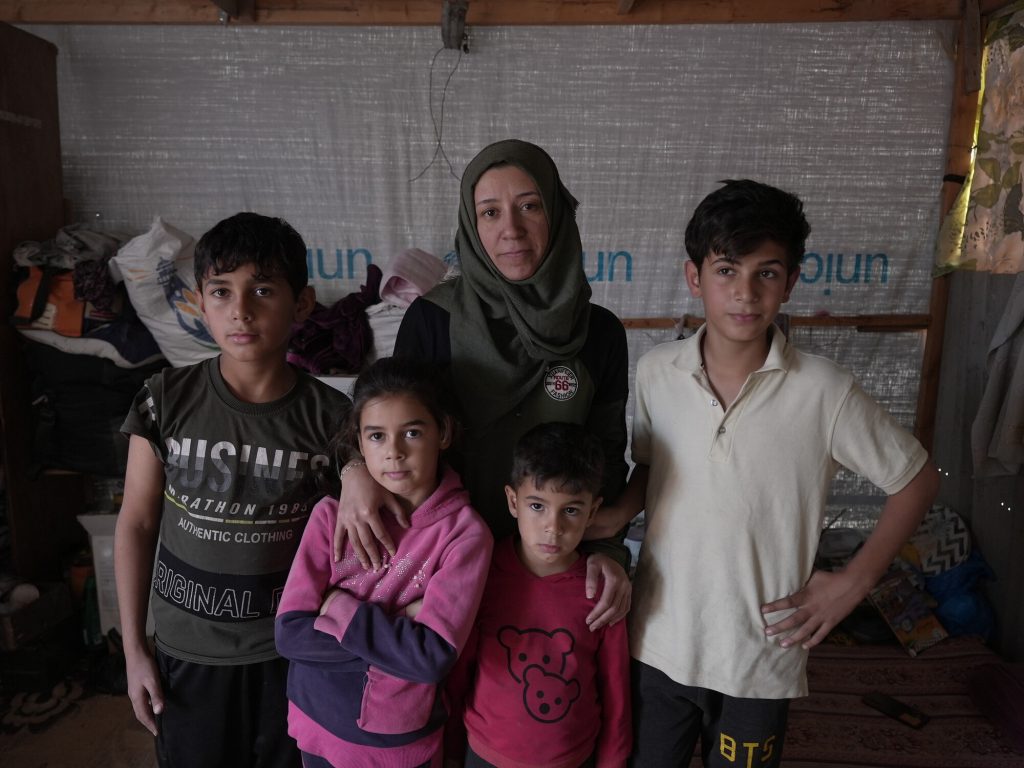(Mis)Using Digital Technology to Silence Advocates of Reproductive Health and Rights
Fighting gender-based violence includes protecting the intersection between digital rights, the right to information, and sexual and reproductive rights.
"Getting homophobic, transphobic comments or even death threats is pretty common in this line of work. We're used to it," says Rae Jardine, founder and executive director of SRHR Hubs, a Toronto-based grassroots organization. "But we had never experienced nor heard of anything like this before."
In October 2022, Oxfam Canada awarded Rae a grant to support SRHR Hubs' development of an open-source interactive digital map that would provide a comprehensive directory of services relating to sexual and reproductive health and rights (SRHR). The SRHR Map allows users to filter results by service type, location, costs, waitlist times, and accessibility. The map largely focuses on Toronto for now, but there are plans to expand it across Canada.
To ensure the map met the community's needs, SRHR Hubs released a beta version for testing before its official launch. They used the grant to fund community consultations and focus groups. They also set up an online feedback system for the public to provide suggestions to improve the map's information and functionality.
However, the map’s progress stalled during this phase.
For over six months, bots from an unknown source attacked the SRHR Hubs website. They initially bombarded its community consultation signup forms and meeting polls. Then, they moved to the map's feedback system, causing it to crash multiple times every day. Also, SRHR Hubs' inboxes were flooded with hundreds of daily spam emails.
A Sophisticated Cyber Attack Aimed to Cause Havoc
"The stuff we were getting wasn't explicitly malicious towards our work," says Rae. "But it certainly wreaked havoc as we sought to collect data on community insights about our resource.
The bots weren't sending threats, insults, or violent anti-abortion messages commonly received by staff working in reproductive health. Instead, Rae explains they filled the feedback form with what looked like real comments. Although the feedback software had robust security, Rae notes the bot mirrored human behaviour to trick the security features.
These continuous attacks drowned SRHR Hubs in useless data.
The organization's main inbox was also targeted, and the attackers flooded it with hundreds of emails daily. They weren't typical spam, and it became an enormous challenge for the staff to differentiate between genuine and spammy emails. Eventually, this inbox became impossible to manage.
Not an Isolated Incident
Looking for a solution, SRHR Hubs sought the advice of cybersecurity experts who informed them it was a highly sophisticated attack to disrupt their work. Recently, the Black Birth Project, a research initiative based in Ontario, also faced a similar cyber-attack. They were flooded with fake registration forms, leading to the cancellation of their events for the time being. Some SRHR researchers shared with SRHR Hubs they have heard from other experts who have faced similar situations while gathering data and information from the public.
"As a result of these attacks, we’re eight months, maybe even a year behind where we wanted to be with this project," says Rae. It weighs on her that legitimate map feedback drowned in bogus information while genuine emails went unanswered.
The Cost of Silencing SRHR Information on the Internet
Having access to accurate information about SRHR is crucial for reproductive autonomy. For many, the internet has become the main — if not the only — source of education and information on SRHR resources and services. The COVID-19 pandemic accelerated the shift to digital platforms, with many turning online to learn more about SRHR when visits to health facilities were widely discouraged.
The internet has given SRHR organizations a powerful platform to connect, share, and spread information far and wide. However, it has also made them more susceptible to digital attacks. Spamming web forms or chats, online surveillance, censorship, and repression, as well as sophisticated hacking methods such as infecting SRHR advocates' phones and computers with spyware, are all potential threats.
Canadian SRHR Organizations Lack Funding for Digital Security
Rae adds that SRHR organizations in the United States, Uganda, South Africa, and some European Union countries already have activities and strategies to strengthen digital security. They have access to funding for security software, digital literacy and safety training, and guidance and support from cybersecurity experts.
"In many countries, there are regular conversations about digital security and SRHR," explains Rae. "But that's not happening in Canada."
SRHR Hubs lacked the financial resources to deal with the attacks against its map or email inboxes. Rae says the cybersecurity companies they contacted quoted them thousands of dollars to consult on the issue only — solving it carried an extra and heftier cost.
SRHR Hubs would have officially launched its map in 2022 if these cyber-attacks hadn't happened. It'd be growing its database and expanding to other provinces.
"As a small nonprofit, despite having negligible funding, we managed to bring to life a massive project that included far more features than any comparable Canadian SRHR resource," says Rae. "These attacks not just delayed our work, they also added stress, frustration and burnout," she adds. "We had to reprioritize tasks and take on extra work."
The SRHR map is now working. But its feedback forms aren't available. Users have to fill out and email a PDF form to submit information. To address this, SRHR Hubs are adding more volunteers to help them sort out these submissions and add the relevant data to the map.
Despite all these challenges, SRHR Hubs is determined to make the official launch of the SRHR Map a reality in 2024.
Fighting Tech-Facilitated Gender-Based Violence
When the information void is filled with inaccurate and misinformed content by groups opposing inclusive SRHR, women, girls, and 2SLGBTQIA+ individuals are disproportionately affected as they're more likely not to have access to the information and tools to learn more about their rights or options and are susceptible to misinformation or dangerous practices on family planning, sexual health, and gender identity.
Restricting access to accurate and evidence-based SRHR information violates people's right to information and freedom of expression. Efforts to intimidate and silence SRHR organizations are a manifestation of tech-facilitated gender-based violence.
The cyber-attacks SRHR Hubs experienced forced them to rethink how and what information they share. "We are more mindful about what we make public online," says Rae. "The experience has made us distrustful." For instance, when they receive event signups, Rae meticulously scrutinizes names and email addresses to verify their authenticity.
The protection of digital rights, the right to information, and sexual and reproductive rights is essential to fight gender-based violence. While most Canadian SRHR organizations have yet to face digital threats or attacks that their peers in other countries have been fending off for years, they should start investing in digital safety to protect and uphold gender equality in the digital era. To support these efforts, donors in Canada need to understand the importance of digital security and be willing to invest in it.
As digital technology becomes increasingly integrated into our daily lives, it's crucial to have accurate SRHR online information for people to make informed choices that allow them to enjoy their sexual and reproductive health and well-being fully.
Elena Sosa Lerín is a knowledge translation and communications officer at Oxfam Canada.
What You Can Do
- Amplify these voices: Share this blog post with your friends and network on social media, newsletter, or by email.
- Visit the SRHR Hubs website to learn more about their mission and activities and check out the SRHR Map.
- Donate to support their work.
Rae Jardin was a financial support recipient from the Her Future, Her Choice project in 2022. Funded by Global Affairs Canada, it aims to improve sexual and reproductive health and rights (SRHR) in Canada, Ethiopia, Malawi, Mozambique, and Zambia. In Canada, the project provides financial assistance to youth-led and women's rights organizations to carry out public engagement activities to advance SRHR across the country.

